Ecumenopolis: City Without Limits (2011)
Género : Documental
Tiempo de ejecución : 1H 33M
Director : Imre Azem
Sinopsis
Ecumenopolis: City Without Limits" tells the story of Istanbul and other Mega-Cities on a neo-liberal course to destruction. It follows the story of a migrant family from the demolition of their neighborhood to their on-going struggle for housing rights. The film takes a look at the city on a macro level and through the eyes of experts, going from the tops of mushrooming skyscrapers to the depths of the railway tunnel under the Bosphorous strait; from the historic neighborhoods in the south to the forests in the north; from isolated islands of poverty to the villas of the rich. It's an Istanbul going from 15 million to 30 million. It's an Istanbul going from 2 million cars to 8 million. It's the Istanbul of the future that will soon engulf the entire region. It's an Istanbul nobody has ever seen before.
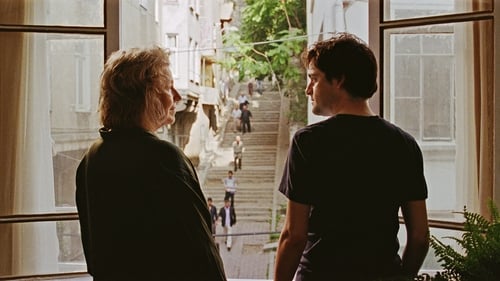
A través de una serie de encuentros, relaciones e incluso muertes, las frágiles vidas de seis personas se cruzan durante sus viajes emocionales hacia el perdón y la reconciliación en Alemania y Turquía. Nejat (Baki Davrak) no mira con buenos ojos la relación que su padre Ali (Tuncel Kurtiz), un pensionista, mantiene con la prostituta Yeter (Nursel Köse). Pero todo cambia cuando descubre que ella manda dinero a Turquía para pagar los estudios universitarios de su hija. La inesperada muerte de Yeter distancia al hijo y al padre. Nejat decide irse a Estambul a buscar a Ayten, la hija de Yeter. Pero Ayten, una activista política que huye de la policía turca, se ha ido a Alemania...
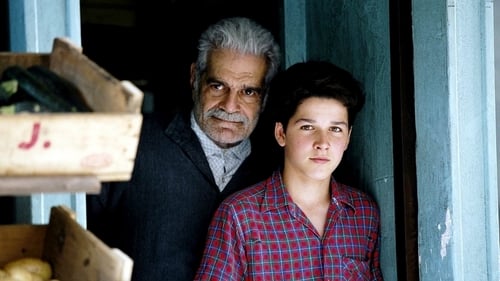
París, años sesenta. Momo, un adolescente judío resuelto e independiente que vive con su padre, huraño y depresivo, en un barrio popular, traba una entrañable amistad con el señor Ibrahim, un anciano musulmán propietario de una pequeña tienda de ultramarinos.

Después de haber intentado suicidarse, Cahit, un turco-alemán de cuarenta años, alcohólico y toxicómano, ha sido ingresado en la planta de psiquiatría, pero no consigue acostumbrarse a dormir sin drogas ni alcohol. A Sibel, una guapa chica turca de 20 años que ha nacido en Hamburgo, le gusta demasiado la vida para ser una buena musulmana. También ella intentó suicidarse para huir de la cárcel de rejas humanas que su familia, muy creyente y respetuosa de las tradiciones, había levantado a su alrededor. Una vez frustrado su suicidio, sólo ve una posibilidad para liberarse de su familia: casarse con Cahit.
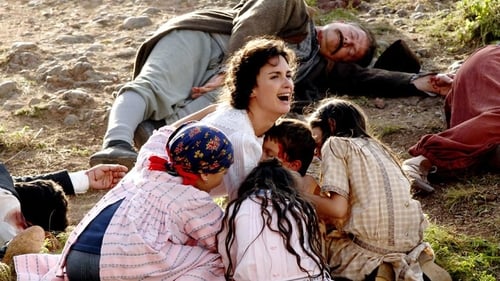
Primera Guerra Mundial (1914-1918). En una pequeña ciudad turca, la guerra y las persecuciones contra la minoría armenia parecen muy lejanas. Después de haber emigrado a Italia, el hijo mayor de una familia armenia, intenta volver a su casa para reunirse con los suyos. Los esfuerzos de su familia por darle una calurosa bienvenida se ven truncados al intervenir Turquía en la guerra. Comienza entonces el éxodo armenio, una odisea marcada por el hambre, la sed y la voluntad desesperada de las mujeres de esta familia por salvarse de la muerte y de la indignidad

In the quiet foothills of Turkey, Faik lives an isolated existence. When his second son brings his boys for a visit, Faik takes the opportunity to pontificate about the law of the land, as he sees it. He shares one unsolicited thought after the next, most particularly focusing on the elusive nomads whom he suspects have been trespassing on his property. The day and night wear on, and each member of the clan takes his turn entrusting the film's audience with his own dark secret.

In this David and Goliath story for the 21st century, a group of proud Scottish homeowners take on celebrity tycoon Donald Trump as he buys up one of Scotland's last wilderness areas to build a golf resort.

Un ladrón de cajas fuertes viaja a Estambul para robar un cetro que alguna vez perteneció a Gilgamesh, pero ahora está en un templo de un culto secreto.

When Dale and Frank spark an environmental catastrophe that threatens to destroy the entire planet, these clueless hosers must travel back in time to set the future right.

Byzance uses a text by Stefan Zweig to describe the Ottoman conquest of the city in 1453. Before he turned to feature filmmaking in 1968 with Naked Childhood, Pialat worked on a series of short films, many of them financed by French television. Byzance is one of Pialat’s six Turkish shorts.

All of Pialat's Turkish films are uniquely interested in the country — especially Istanbul — as it was, not just as it is at the precise moment that Pialat is filming it. History informs these films in a big way, with the voiceover narration (which incorporates excerpts from various authors) introducing tension between the images of the modern-day city and the descriptions of incidents from its long and rich history. Istanbul is probably the most conventional documentary of Pialat's Turkish series, providing a general profile of the titular city, its different neighborhoods, and the different cultures and ways of living that coexist within its sprawling borders. As the other films in the series also suggest, Pialat sees Turkey, and Istanbul in particular, as a junction point between Europe and the East, between the old and the new, between history and modernity.

Maître Galip is the most poetic and powerful of Pialat's Turkish Chronicles, using the poems of Nazim Hikmet to accompany a series of evocative images of ordinary working class people in Istanbul. This was the film that Pialat himself claimed was the most complete realization of what he was aiming for with his Turkish documentaries. It's not difficult to see why this was his favorite: here he abandons the historical commentary and documentary observation of the other shorts in favor of an emotional emphasis on the lives of the poor and the unemployed.A short doc by Maurice Pialat.

La Corne d'or is mostly concerned with religious ritual, examining the mosque (and former cathedral) discussed in Byzance. As a contrast against Istanbul's status as a center of historical religious conflict, Pialat — drawing here on texts by the French poet Gérard de Nerval — also describes the city as a place of strange ethnic and religious harmony, with representatives of various cultures and religions living in close contact. He emphasizes the city's hybrid culture, its blend of Southern European and Arab influences, reflected in both its people and its very construction.

Pehlivan focuses on a three-day wrestling competition, an ancient tradition that dates back over a thousand years to the time of the Ottoman Empire, originating in the games the soldiers would play to entertain themselves in between battles. Maybe that's why there's more than a hint of homoeroticism in the way the wrestlers oil themselves up with grease, making sure to cover every inch of their bodies so that their opponents will be unable to get a grip. Pialat's closeups emphasize the men's muscular bodies jammed together and sliding off one another, posed in intimate, twisted arrangements, struggling desperately for a grip on each other's bodies. Arms are jammed down pants, one of the only places there's some potential for a handhold, and the whole thing is very suggestive and sensual, a form of intimate male contact that's sanctioned as a show of strength and masculinity.

Short doc by Maurice Pialat. The first film in the series set at Turkey, Bosphore, is also the only one that was shot in color.

This deeply human documentary examines the subject of environmental destruction, highlighting the impoverished migrant workers who are chopping down the Amazon rainforest to create charcoal for pig iron production used primarily in the automobile industry. The film examines the children and elders and their daily lives and work as they burn timber in igloo-looking huts, their bodies charred gray for $2 a day, struggling to survive.
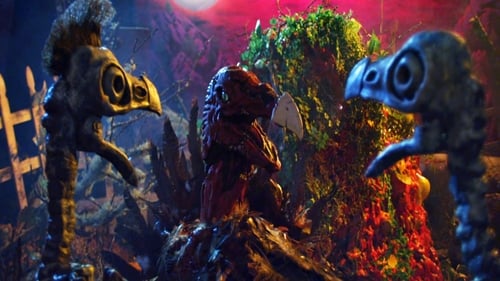
Fowl-mouthed villain Turkie carves through the likes of a rapping grandma, a mindless puppet, a wig-wearing inventor, a bisexual space worm, and their equally ridiculous friends on his quest to recover the last copy of "ThanksKilling 2". Also known as "Turkeys, In, Space!".
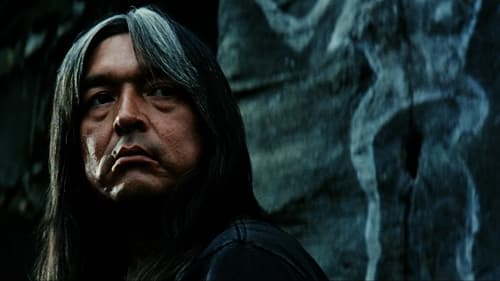
A white lawyer finds his values shaken when he is paired with an angry Indigenous activist who insists on kidnapping the head of a logging company to teach him the price of his destruction.

Tom Turkey and his friends play their harmonicas so enthusiastically that they nearly destroy the general store.
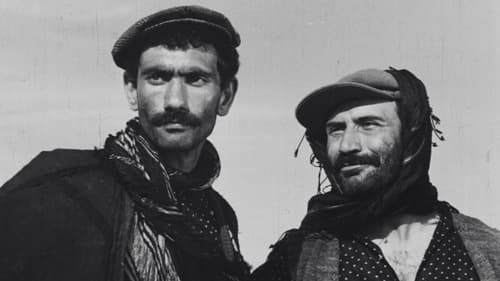
La vida en la frontera es realmente difícil. La tierra es pedregosa y seca, los agricultores aran los campos de arena y las actividades ilegales parecen el único recurso. En Deliviran, un pueblo al lado de Urfa, cerca de la frontera siria, el jefe de Hidir, implicado en un tráfico de migrantes, es asesinado. Hidir intenta mantenerse alejado de estas actividades ilegales, pero las circunstancias le obligan a pasar clandestinamente un rebaño de ovejas a Siria. Entre la miseria y las minas, Hidir lucha por mantener su sueño intacto y a su hijo con vida.

Planning to take any job she can get in order to save enough money and leave Turkey for the U.S., Mina is hired at an Istanbul café as a fortune teller who reads the dregs in coffee cups. She discovers she has the ability to offer comfort and insight to the customers who are just as lost in the wilderness as she is.











